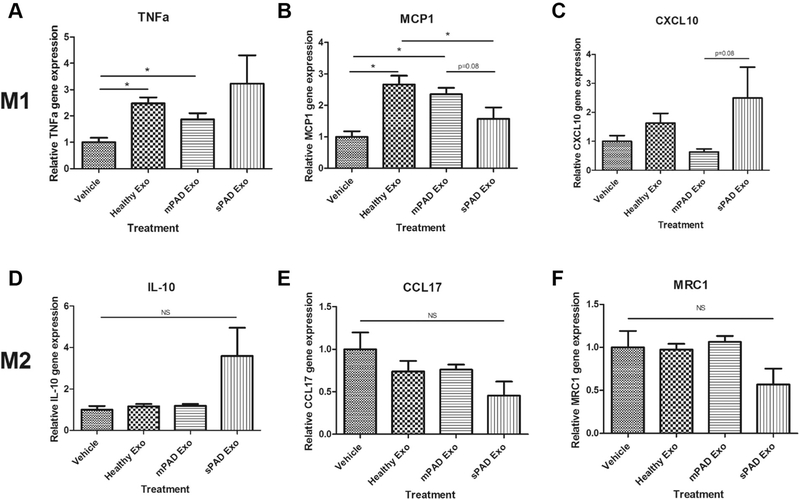Fig 3.
Exosomes from peripheral artery disease (PAD) patients do not significantly alter M1-and M2-related gene expression in monocyte-derived macrophages (MDMs). Compared with vehicle or treatment with exosomes (Exo) from healthy individuals, exosomes from mild PAD (mPAD) or severe PAD (sPAD) patients did not significantly affect M1-related tumor necrosis factor α (TNF-α; A), monocyte chemoattractant protein 1 (MCP-1; B), or C-X-C motif chemokine 10 (CXCL10; C) or M2-related interleukin 10 (IL-10; D), chemokine (C-C motif) ligand 17 (CCL17; E), or mannose receptor C-type 1 (MRC1; F) expression, except where noted. Relative gene expression was calculated using the 2–ΔΔCt method with normalization to two housekeeping genes, hypoxanthine-guanine phosphoribosyltransferase and ubiquitin C. Data are reported as mean ± standard error of the mean, n = 5–6/group. *P < .05 (one-way analysis of variance with Tukey post hoc test). NS, Not significant.

